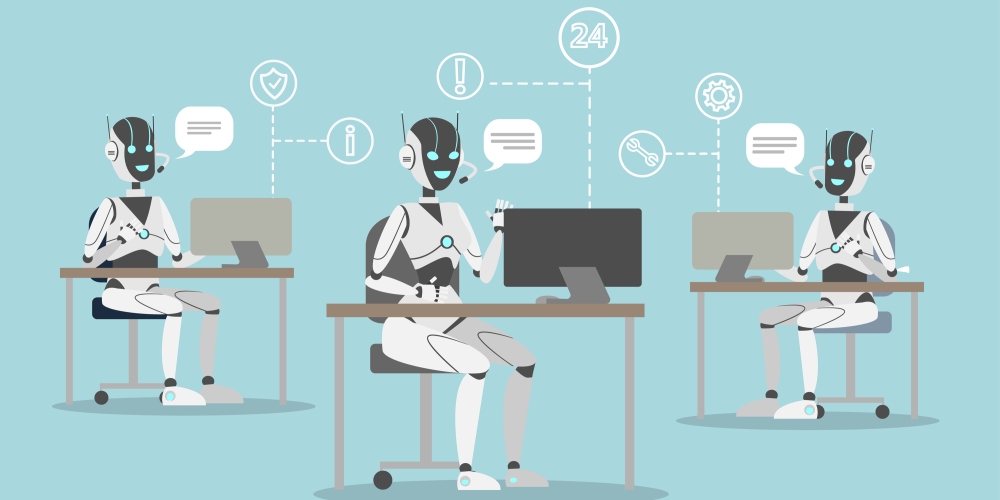
There’s been a lot of discussion about artificial intelligence and its uses in customer service to facilitate faster, smarter customer engagements. Already, countless businesses are leveraging some form of AI to facilitate self-service using chatbots, speech recognition, and automation solutions. The question being asked, though, is whether as AI continues to evolve, will it replace human agents altogether?
The simple answer is no.
There’s no question AI can improve customer interactions and make them more efficient – and certainly eliminate the need for live agent interaction in many cases. Repetitive tasks, routing, and self-service options are among those that can benefit from AI and automation while increasing agent productivity by allowing them to focus on more valuable engagements – those that require creativity, decision-making, empathy, or other human elements that AI can’t provide. This has the secondary benefit of reducing monotonous repetition for agents as the handle more interesting and engaging situations, which should reduce attrition, long a major hurdle for contact centers.
However, while AI engines can prioritize engagements by importance or urgency based on a variety of variables, they are not capable of handling emotion. Customers often call customer service when they have problems – it might be a cancelled flight, a missed scheduled delivery, a broken appliance, or virtually anything else that is a departure from normal expectations.
Bots and AI engines can identify certain elements – that you are calling about an item not being delivered on schedule, for instance – but it may not be able to identify the urgency of the situation. What if the missing package contained a passport for a trip the following day?
High-emotion scenarios are important for two reasons. They have an immediate impact on customer satisfaction, and they tend to be long-lasting. The need to handle these situations with a human agent is critical to resolving them quickly and to the customer’s satisfaction. This is also why customer service teams must have the ability to collaborate with other teams in their organizations – to be able to find creative solutions to problems that could otherwise lead to customer churn. Any situation that can’t be completely defined by algorithms should be handled by human agents.
That’s not to say bots don’t have a role. In fact, the moment it becomes known the package won’t be delivered on time, a message can – and should – be sent to the customer notifying him of the delay. At that point, depending on the level of urgency, the customer will either be fine with the delay or contact customer service if the delay presents a problem. Embedding communications into notifications can help AI effectively prioritize customers.
For instance, if the same customer clicks on the “Contact Customer Support” button from the email or text notification, there’s a high probability of a high-emotion engagement that should immediately be routed to a skilled agent, along with all background information. Instead of putting the customer through a bot system to eventually reach an agent, recognizing the potential of an emotionally charged situation and allowing it be immediately addressed by an empathetic and creative human agent can be the difference between success and failure.
AI can help manage workflows, provide information, and handle many common customer concerns and it will make contact centers much more efficient. Siri, Alexa, and Cortana are all helping people live with artificial intelligence, and their acceptance is helping define how AI and live agents will work well together. But, there will always be a need for human interaction. When an unhappy customer is on the line – whether that line is a phone, chat room, social thread, or anything else – and there is nobody to listen, that customer is simply not going to be heard. Simply put, there is no substitute for the human experience when it comes to understanding emotion and other unique scenarios.
AI, Machine Learning, and chatbots and how they can be used to deliver better experiences will be among the key areas of focus at the Future of Work Expo 2020, taking place in Ft. Lauderdale, Florida, February 12-14, 2020. The conference will feature discussions about some of the latest and most innovative uses of AI not only in customer engagement, but across the entire enterprise environment. If you are interested in sharing your AI experiences and to be part of the conversation around how AI is defining the Future of Work, the Call for Speakers is currently accepting proposals. Registration for the conference is also open.